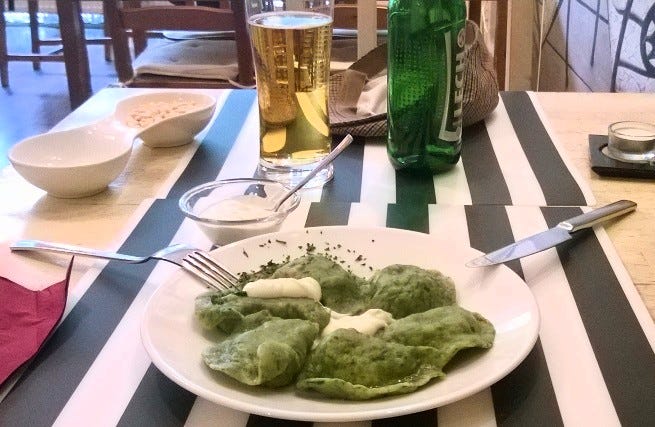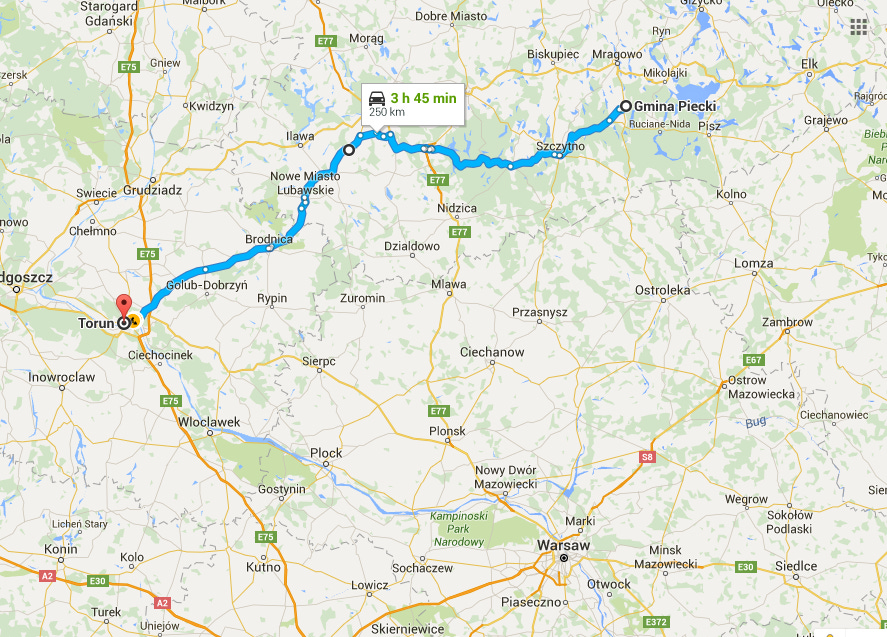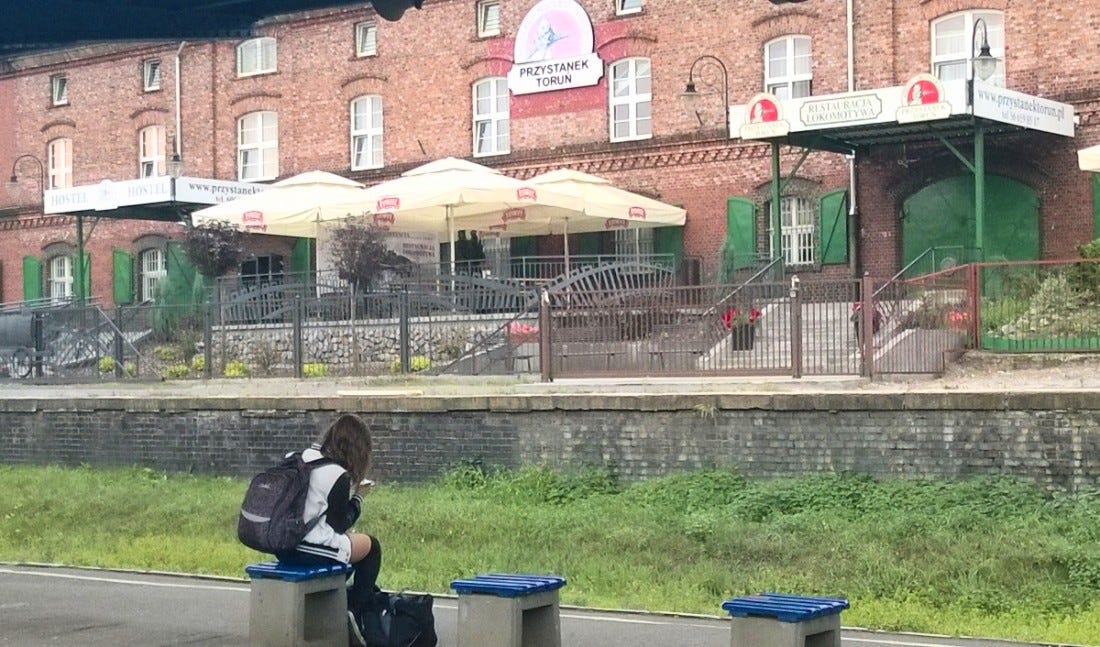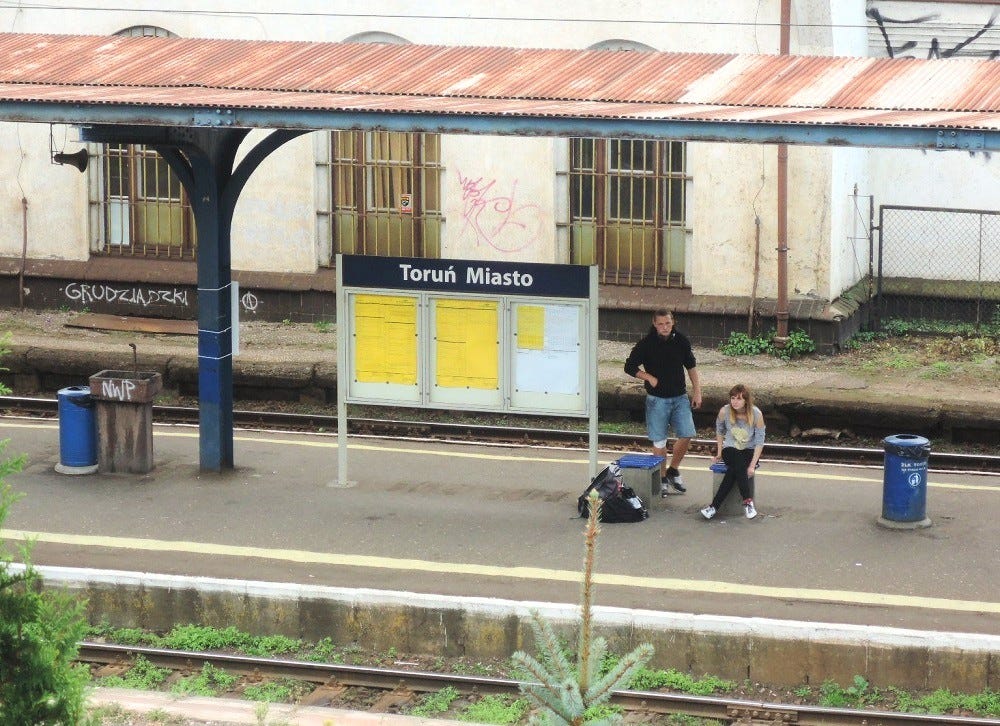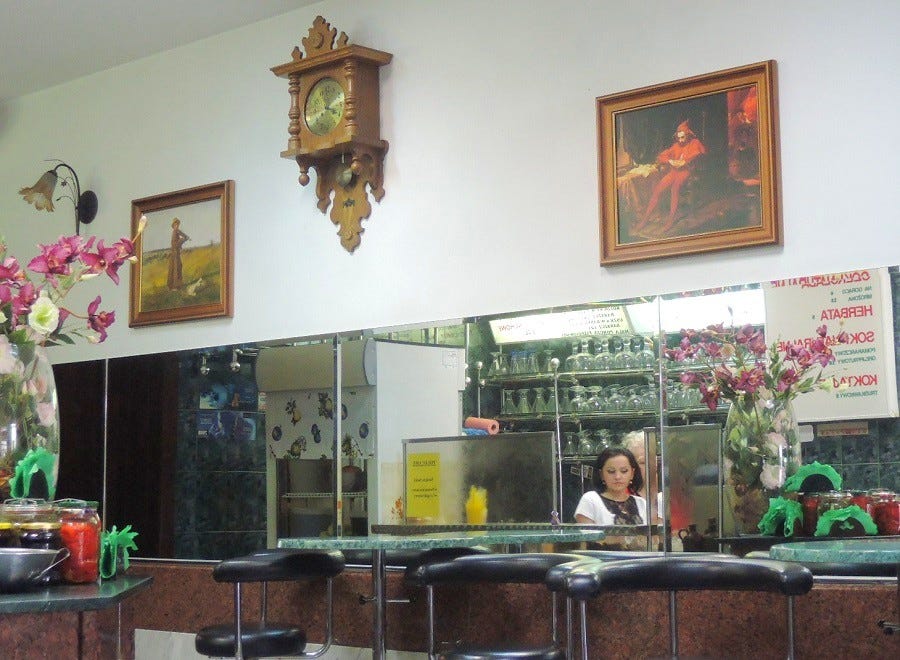I leave Piecki behind on a fine motorcycle morning, cool and sunny, riding along a bended, hilly road (much to be desired in this rather flat country) with one of the worst pavements ever: so wrinkled and pot-holed you feel your limbs and junctures about to dislocate. When going past Novy Miasto Lubawskie I stop for a quick lunch in an inn. For more than five minutes the barwoman doesn't pay me any attention, not even bothering to say "hello, I'll be with you right away". Oh, shadows of Poland!: despite better manners having arrived to the main cities' fine quarters and touristic destinations, this people are yet to learn almost everything about customer treat, and in most of the country you still can breath that soviet republic atmosphere. Waiters, tenders and attendants suffer from selective vision syndrom, a bad habit that makes the customer feel truly invisible: it's not just that you are seen and ignored, but that they don't see you at all! It would be an interesting experiment to stand right in their way: would they, like ghosts across a wall, pass you through?
After lunch, the day begins to turn dull: grey and windy; though as to the wind, maybe it's a matter of this region, for I see many eolian generators around here. A land not too nice not too ugly, but rather boring, soulless, like some areas of Spain’s Castile: small scattered groves, large agricultural tracts and a few factories, seemingly dating from the industrial revolution.
Hometown to the astronomer Nicolas Copernicus, Torun is an old acquaintance of mine, and used to be my favourite city during the time I lived in Poland. The old quarter was founded in the early middle ages by Teuton knights, built in massive red brick Germanic style of the epoch, with its thick walls and its castle now in ruins. When I first came here, it still preserved that medieval flavour characteristic of places that haven't changed for decades: non renovated buildings, coarsely cobbled streets — when not simply pebbled, old-style shops, and so on. But, unfortunately, for the past two lustrums the ambitious tourism-focused urban planning has distorted — and in a way depreciated the old Torun, almost turning it into a caricature of itself. Despite having been declared a world heritage site, the city council didn't hesitate —for instance— in replacing the main street old flagstones (in perfect shape, by the way) for new ones more "in keeping with the times", so to say, and large sums have been invested for turning the centre into a theatre stage, like Riga or Tallinn. Or perhaps the planning came from above and it was the Polish government who wanted to make Torun a ‘Cracow of the north’. Avant-garde buildings, unnecessary renovation of the riverbanks, a marina without boats, redevelopment of the Jewish quarter and intense promotion —presumedly cultural— of performances, concerts and festivals, count among the elements that have transformed —and will continue to— the city. I go out for lunch with my friend Artur, and for a dessert we sit at the terrace of a recently opened, presumedly original and vanguardist local, though it rather looks like Kubrik's Clockwork Orange, an out-of-tune note in old town's pretty New Square: psychodelic chairs, bottle boxes instead of real tables, much plastic, mobile-operator style colours... well, distasteful.
So, perhaps the best of the days I'm spending in Torun is the hotel where I stay: one of the most genuine and less known in town, right across the rail tracks of Toruń Miasto, a secondary station, very near the centre yet not easily accesible. Hotel Przystanek (which means "stop") is a quiet place with a local clientele, and except for some wedding party or the occasional hubbub of the students lodged here, it's rather silent despite the rail traffic: not many trains pass by Torun Miasto; and anyway I like their muffled clatter: somehow I find sedating that so evoking noise of steel and wood in combination that trains carry along with them like flowers carry their aroma.
Lastly, there is in Toruń café Relaks: an old family restaurant, home-made food, speciality in dumplings and icecreams, whose outdated decoration and socialist-country style is in tune only with the two busty ladies running it for lustrums: mother and daughter, widow and spinster, who seem to have just stepped out of a daguerreotype. I don't know how longer this local, that hasn't changed at all probably since it was opened, will stand the push of new commerce; but what I do know is: the day café Relaks closes down, the old Torun will be gone forever.



